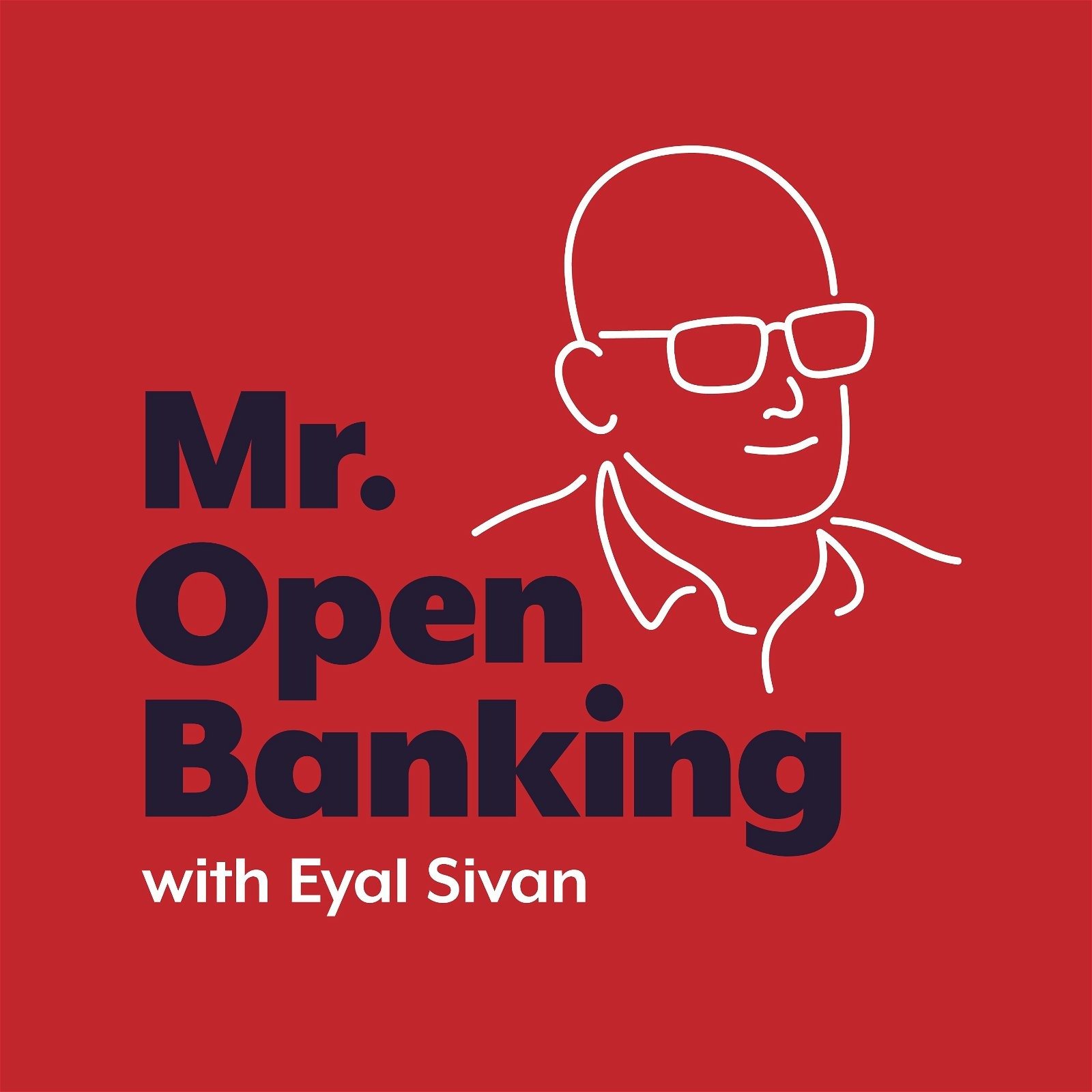![Enhancing Workflows with AI: Insights from Russell LaCour, CTO of Odin AI [SPOTCAST] Artwork](https://www.buzzsprout.com/rails/active_storage/representations/redirect/eyJfcmFpbHMiOnsibWVzc2FnZSI6IkJBaHBCTUtMZVFnPSIsImV4cCI6bnVsbCwicHVyIjoiYmxvYl9pZCJ9fQ==--70eb364385f2c4556aab07b8165a94ad339a5661/eyJfcmFpbHMiOnsibWVzc2FnZSI6IkJBaDdDVG9MWm05eWJXRjBPZ2hxY0djNkUzSmxjMmw2WlY5MGIxOW1hV3hzV3docEFsZ0NhUUpZQW5zR09nbGpjbTl3T2d0alpXNTBjbVU2Q25OaGRtVnlld1k2REhGMVlXeHBkSGxwUVRvUVkyOXNiM1Z5YzNCaFkyVkpJZ2x6Y21kaUJqb0dSVlE9IiwiZXhwIjpudWxsLCJwdXIiOiJ2YXJpYXRpb24ifX0=--1924d851274c06c8fa0acdfeffb43489fc4a7fcc/ODIN%20AI%20thumbnail_image.png)
Banking on Information
Where we dive deep into the dynamic world of Financial Services and Technology. Discover the innovative solutions driving the industry forward, exploring the latest trends, and uncovering the strategies that are reshaping the future of finance.
Join us as we unravel the WHY, WHAT and HOW of solution providers in the Financial Services industry. Stay tuned for insights that will revolutionize the way you think about money and technology.
Each guest will engage with our host Rutger van Faassen in Futures Thinking and provide their view of a possible future and how we can get ready for that future today.
RSSVERIFY
Banking on Information
Enhancing Workflows with AI: Insights from Russell LaCour, CTO of Odin AI [SPOTCAST]
In this episode we speak with Russell LaCour, CTO at ODIN AI about his WHY, WHAT and HOW when it comes to applying agentic AI to the mundane part of our jobs to save time and money.
Russell discusses the transformative power of large language models in automating business processes. He shares insights on how AI agents reduce costs, streamline workflows, and envision a future with AI personal assistants. Odin AI focuses on structuring fragmented data to enhance context-aware automation for enterprises.
Key Words
- AI automation
- Large language models (LLMs)
- Odin AI
- Russell LaCour
- Business process optimization
- AI personal assistants
- Data structuring
- Workflow automation
- Cost reduction
- Enterprise solutions
Hello and welcome to another episode of 'Banking on Information'. This is a live tapping. It is a on-the-spot podcast. With me today is Russell. Russell works for Odin AI and is the CTO. And welcome to the podcast, thank you, thank you for having me, as we discussed, we always start with that very important question: why do you do what you do? Yeah, well software engineering and AI have been at the core of what I've been doing for over a decade now. A lot of it stems from this idea of automating the mundane. So really building tools and technology that takes away busy work so that we can start to focus on decisions that matter and work that matters.
So Odin, and really, when large language models became more prolific, we were able to start building AI agent technology that starts to really make mundane work go away in a way that's very robust. Most of the technologies that existed before, it was a point solution that kind of worked sometimes, didn't necessarily do what you wanted. But now with the advent of technology like GPT-40 or LAMA 3. 2, you can do real work with AI. Right. So, you believe that we should focus on the mundane work. We should let the LLMs do help us with the mundane work so we can focus on the more important parts. Exactly that's great! Now what is it that Odin AI does? How do you help your customers? What use cases do you solve for, yeah?
So we're a platform which really means we solve everything right, but what it comes down to is that every single business, especially in enterprises, you have very specific ways that you do things, you have very specific business processes or SOPs. Right! And so we go in and implement large language model technology, the Odin technology, to help automate your actual work. So rather than just asking ChatGPT a question or just having a retrieval augmented generation pipeline answer something for you, we'll help you actually get ROI using this AI technology. And so you help customers solve a problem by creating an agent or agentic solution that helps them solve for a particular problem. Exactly. And so particular problems that we've helped different companies solve are a lot around reporting.
So if you think like, again, think of a chatbot. A chatbot will answer one specific question. Yeah. A report is the answer to 50 questions or 30 questions, yeah. And so, using the same technology that you might use to build a chatbot, you can use it to generate a report right? Those reports typically within an enterprise, like you've got five people working on it for a month or, we recently built like a quarterly variance like financial reporting agent, yeah this was for a very large company that was spending two weeks with over 10 employees to go through tens of millions of transactions. We built an AI agent that does it for them within an hour, wow! So it took their cost of generating the report from twenty thousand dollars a quarter to a hundred dollars in LLm credits, wow, that's pretty amazing!
So how do people get value? You touch the phone a little bit well what are the kind of the metrics that you see with customers when they use your solution, what makes, what? Do you make better for them? Yeah. So the first thing that we do, we always take a consultative approach. Basically, what are the things in your business that you're doing all of the time that you've struggled to automate or maybe you've just started looking at automating? And we help you implement AI agent technology within those processes and break down for you the real value of it. Hiring a team and trying to do it, and figuring out six months and a half a million dollars later that, oh, maybe we shouldn't have tried to automate this or maybe the technology isn't there.
We can tell you from the very beginning, we should focus here, here, and here. And this is where you're actually going to derive value. Now, I like to do this thing called futures thinking. Now, we don't know what the future is going to bring. We don't even know what's going to happen tomorrow. But we can think about what a possible future could look like. And in futures thinking, we actually think 10 years out. Because that way we can really sort of break out of the box and think, hey, what if it is 2034? What does the world look like? And how do you see AI being used in 2034? Yeah. So I'll give the answer that I think everybody's aware of now, which is like, we will have AI personal assistants, all of us.
I like to always say to people, like, you know, when we were growing up and even in school, we had to learn Excel. We had to learn how to format a Word document. You won't need to learn that in 10 years. You will just talk to your personal assistant and ask your personal assistant to update the spreadsheet. Give me a chart. What's the latest in this? Respond to this email for me. And really, that's the technology that we're building. And we're limited by the capabilities of the technology today the same way that the first version of the iPhone was. But now, with the iPhone 16, I can communicate with someone in real-time on the other side of the world and see their face the same way that you would just talk to your computer and it will do things for you.
So 10 years from now, we will all have assistants and my assistant will contact your assistant to see if we can do lunch, that's probably what's going to happen exactly so so if that's the case right if that's where we're going to be 10 years from now, what do we need to do today to get ready for that possible future yeah so a lot of what we do is you would think like data structuring so a lot of our data is super fragmented you know I've got For instance, if I'm working with a client, I have emails with them. I have meetings with them. I have notes about them. I was in one of the meetings. This guy was in another one. Our notes are different.
And actually consolidating all of that and making sense of all of that is super critical when you're talking about that personal assistant, right? It's super important that my personal assistant knows actually we had this meeting which was impromptu and here's the things that we talked about. So that way when I'm following up, that context isn't lost. So a lot of the work that we're doing today is about how do I keep all that context? How do I make sure this agent is aware of this meeting? And we're not quite there yet, right? Like yeah, but there's a lot that you can do. Emails and meetings that are scheduled are totally up for grabs. All of the documents that you have within SharePoint or Google Drive-all of that is available to the agents, yeah.
And as this technology gets cheaper, faster, smarter, it's only a matter of time until it's fully aware of all these different aspects, right? Well, that sounds like a like like a really interesting way to get started. So, it's almost like if you're having a real-life assistant and they're handing over to another real-life assistant, you want to make sure that everything's nicely structured and it's a nice handover-exactly well. Let's let's end on that note, I think that was a really good one. This was another episode of Banking on Information. Thank you very much for watching, thank you very much for being on today, and until next time, choose to be curious.







